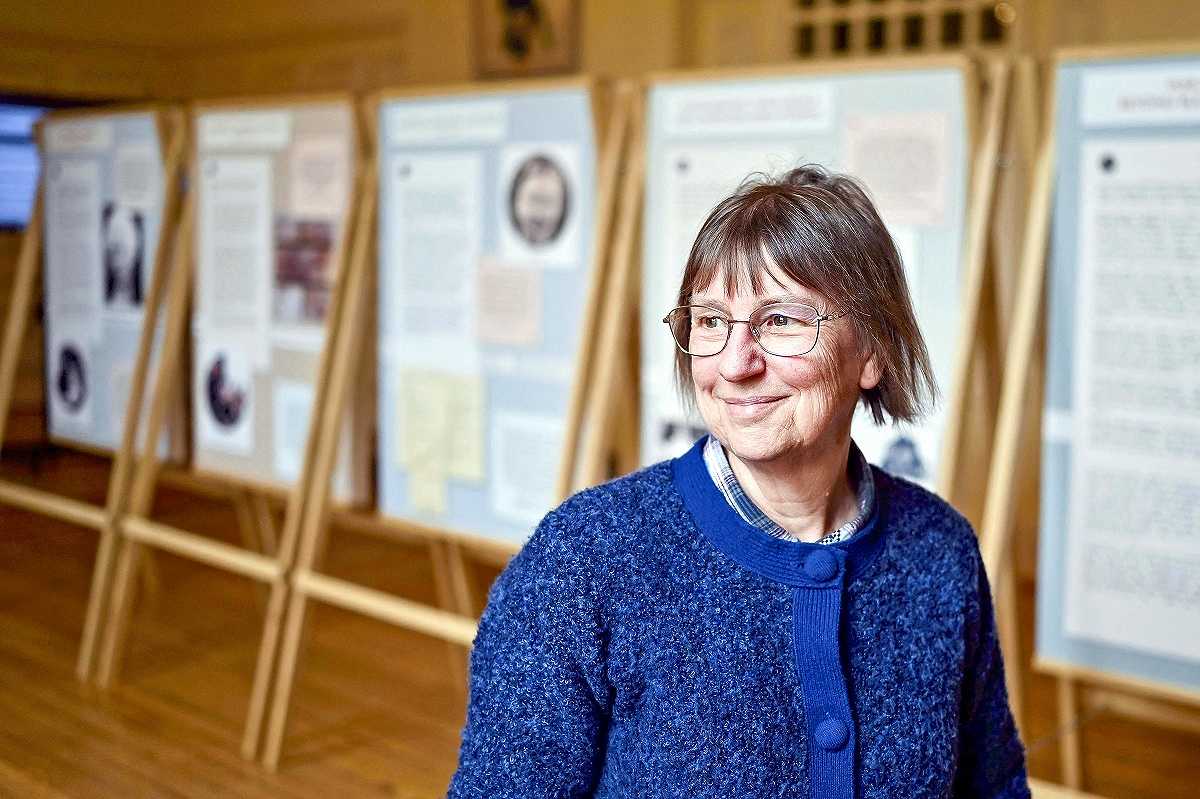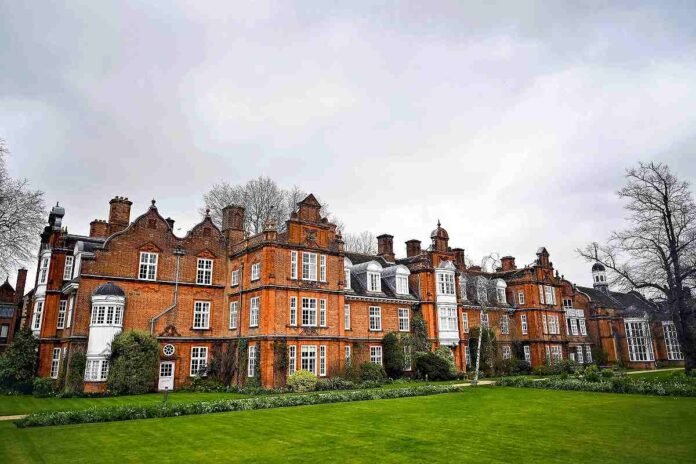The garden and building of Newnham College, which is part of the University of Cambridge, can be seen in Cambridge, England.
15:50 JST, May 9, 2024
CAMBRIDGE, England (AFP-Jiji) – During World War II, dozens of female Cambridge University students worked around the clock in complete secrecy to crack Nazi codes, but only now are the unsung heroes being recognized.
At least 77 women from the all-female Newnham College were drafted to Bletchley Park, the code-breaking center north of London, during the conflict.
It was there that mathematician Alan Turing decoded messages encoded by the Nazis’ Enigma machine, specifically those sent by German U-boat submarines in the North Atlantic.
Historians generally acknowledge that Bletchley played a key role in bringing down Adolf Hitler.
But the story of the Cambridge women has only recently been revealed thanks to research started five years ago by Sally Waugh.
The 69-year-old former student and teacher from Newnham said she wanted to highlight the role of women in this period, which is often ignored in history books.
“No one has ever been able to say thank you,” she told AFP.
“I had no idea people from Newnham were going to work at Bletchley Park.”
One day she came across an article that mentioned the name of an old friend, Jane Monroe, who died in 2005.
When Monroe, a mathematician from Newnham, was asked what she had done during the war, she replied unfazed: “Oh, I made tea,” Waugh said.
“She was actually a code breaker. She was a friend, but she didn’t tell me.’
Monroe could not talk about her role because she had signed the Official Secrets Act, which restricts the publication of government information deemed sensitive.

Newnham College alumna and maths teacher Sally Waugh poses for a portrait on March 21 during the ‘Newnham and Bletchley Park’ exhibition which traces the history of the women from Newnham who worked in Bletchley during the Second World War.
D-day
The article mentioned three other women, whom Waugh tracked down in the university’s archives.
“I thought, if there are four, I wonder if there are more?” she remembered.
In fact, Waugh found about twenty names and then cross-referenced her information with Bletchley Park.
Together they were able to identify almost 80 women.
The only one whose name has gone down in history so far is mathematician Joan Clarke, who was recruited in 1940 and worked with the famous Enigma decoder and computer scientist Turing, to whom she was briefly engaged.
She became deputy head of her unit and continued to work in intelligence after the war. Keira Knightley earned an Oscar nomination for her portrayal of Clarke in the 2014 film “The Imitation Game.”
Also on the list is Violet Cane, another mathematician with a talent for statistics. She worked in the Bletchley Naval Section between 1942 and 1945.
German speaker Elizabeth Langstaff was tasked for months to reconstruct German messages from raw decryptions, interpret abbreviations and analyze the results.
In late 2023, a Newnham archivist discovered a letter dated January 28, 1939, in which the head of college at Bletchley Park confirmed that “in case of emergency we should be able to find for you about six students skilled in modern Languages, so that the work at the Ministry of Foreign Affairs can be carried out.’
Founded in 1871, Newnham eventually sent mathematicians, linguists, historians and even archaeologists from Bletchley to analyze aerial photographs.
“Newnham women were represented in most of the key areas of Bletchley Park’s work,” Jonathan Byrne, Oral History Officer at Bletchley Park Trust, told AFP.
That included decrypting German signals encoded by Enigma, producing intelligence reports, understanding Nazi activities by analyzing signal networks and studying diplomatic signals.
About 50 of the women are believed to have served on June 6, 1944 (D-Day), when Allied troops landed on the beaches of Nazi-occupied northern France.
“Although the work they were involved in contributed to Allied planning for the liberation, most would not have known when the invasion took place,” Byrne explained, although some may have suspected it.
“German signal traffic in France increased in response to the invasion, making early June 1944 a busy time at Bletchley Park,” he explained.



